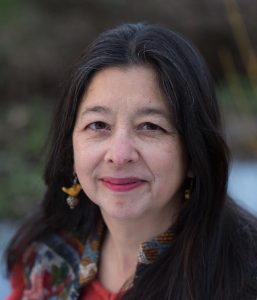This is the first of a series of blogs for Rapid Transition focusing on evidence-based hope from volunteer-led groups who are taking action to restore nature and tackle the climate emergency in practical ways. Thank you to Rapid Transition Alliance members and the Transition Town movement for so many inspirational stories from the UK and across their global network.
The power of images
As anyone who’s ever trawled the internet will know, pictures speak louder than words. Social media posts that feature an image will get many more views that those that only feature text. But it’s not just the ‘stickiness’ of images that holds our attention, images hang around in our brains far longer. “Hear a piece of information, and three days later you’ll remember 10% of it. Add a picture and you’ll remember 65%” says ‘Brain Rules’ author, John Medina.
What does this tell us about how we effect change? How we launch projects and build collective action? Well, it tells us that showing is more effective than telling, as every single ‘how to write’ tutorial on the planet tells us. Part of that is to do with speed: we register visual information so quickly it feels instantaneous, whereas reading takes time (who has time for fat novels any more?).
If you’ve read this far, well done! Here’s a picture:
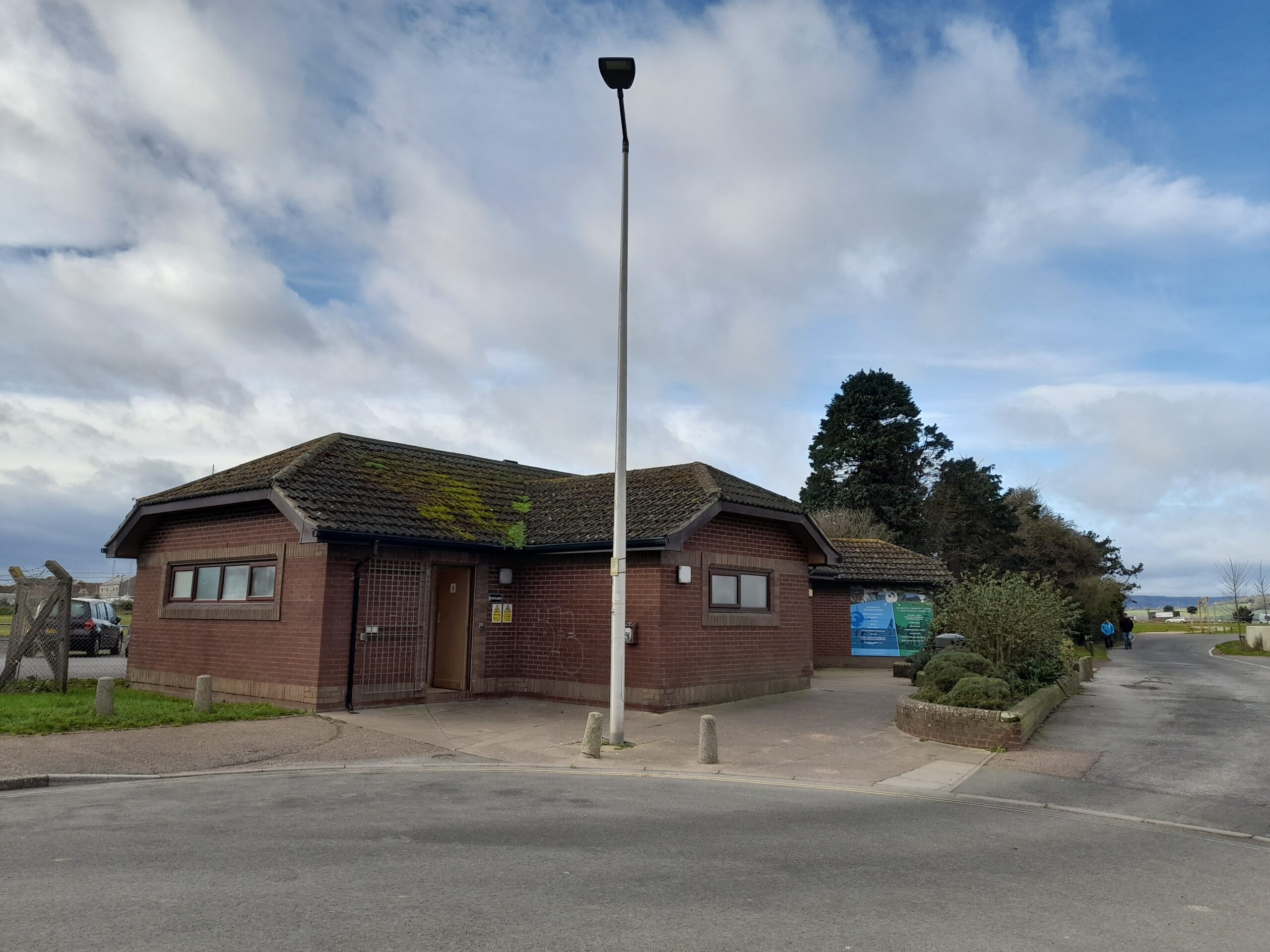
Yes, it’s a toilet block. A particularly unprepossessing bit of eighties municipal architecture at that. Located at the mouth of the River Exe, and plonked between a car park and the local rugby club, this public convenience is the unlikely site for an inspired piece of community activism. When the East Devon District Council took a long hard look at their budget in 2021, and mapped it against the provision of such conveniences in the town, they decided it didn’t add up.
Community eco-hub
Enter the unstoppably enthusiastic powerhouse called Nicky Nicholls. Chair of the Exmouth Transition group, mother of two, mushroom enthusiast, events manager and environmental visionary, she could see what others couldn’t. Along with other members of the Transition team, Nicky “got wind of the toilets,” as she puts it, and they put their heads together to come up with a plan.
In fact, the group’s aspiration to have a community eco-hub had been bubbling away in the background for several years. They had held a big community visioning exercise in 2019, involving over 100 people to imagine what a sustainable Exmouth might look like, and how that might be achieved. One of the ideas that came up was for an eco-hub education centre. “That came across loud and clear in that early meeting,” says Nicky. “We don’t have a space to meet – as a community. Which is weird for a town of 35,000 people.” So when the district council decided the loos had to go, Transition Exmouth stepped up.
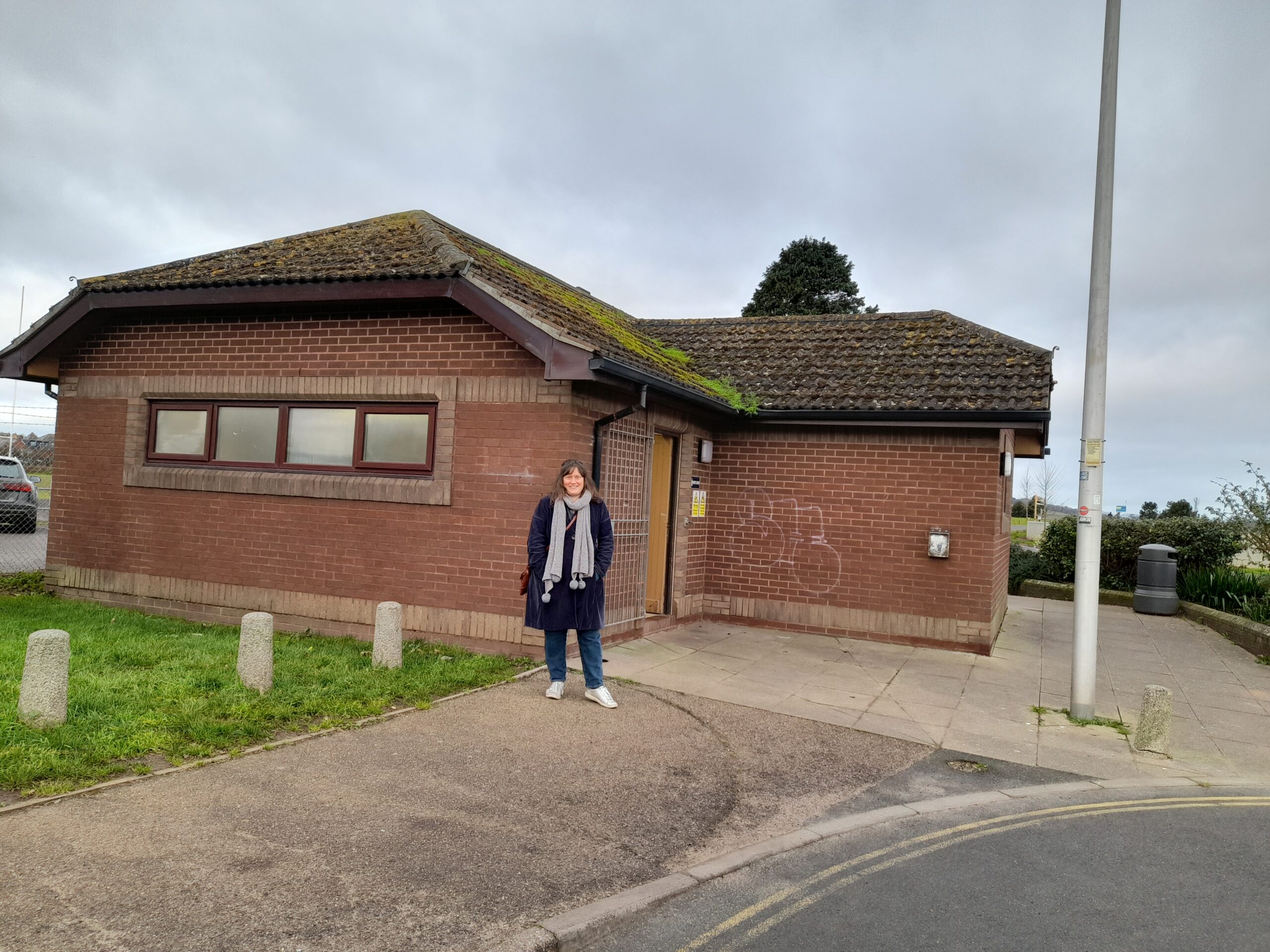
The idea of this project was made possible by the desire for a community meeting space featuring in the East Devon Neighbourhood Plan for Exmouth; which in turn could enable the town council to access and spend CIL money on the project. What comes across loud and clear in Nicky’s explanation is just how important it is to have council-level support for community projects like this. The sometimes creaky and often frustratingly slow grinding of the wheels of local governance can suck the life-juice out of otherwise engaged and energetic local activists, but when it works, it can turn a pipe-dream fantasy into a concrete (or wood, or other eco-friendly building material) reality.
“After an initial chat with the Town Clerk, I got hold of my friend Rosie, who’s an illustrator, and we stood outside the toilets and I said, if I tell you everything that’s in my head, can you draw it? And she drew the most brilliant picture. I took it to the town council and everyone absolutely loved it. The power of the illustration.”
Enough with the words. Here’s Rosie Johnson’s illustration so you can see what she means:
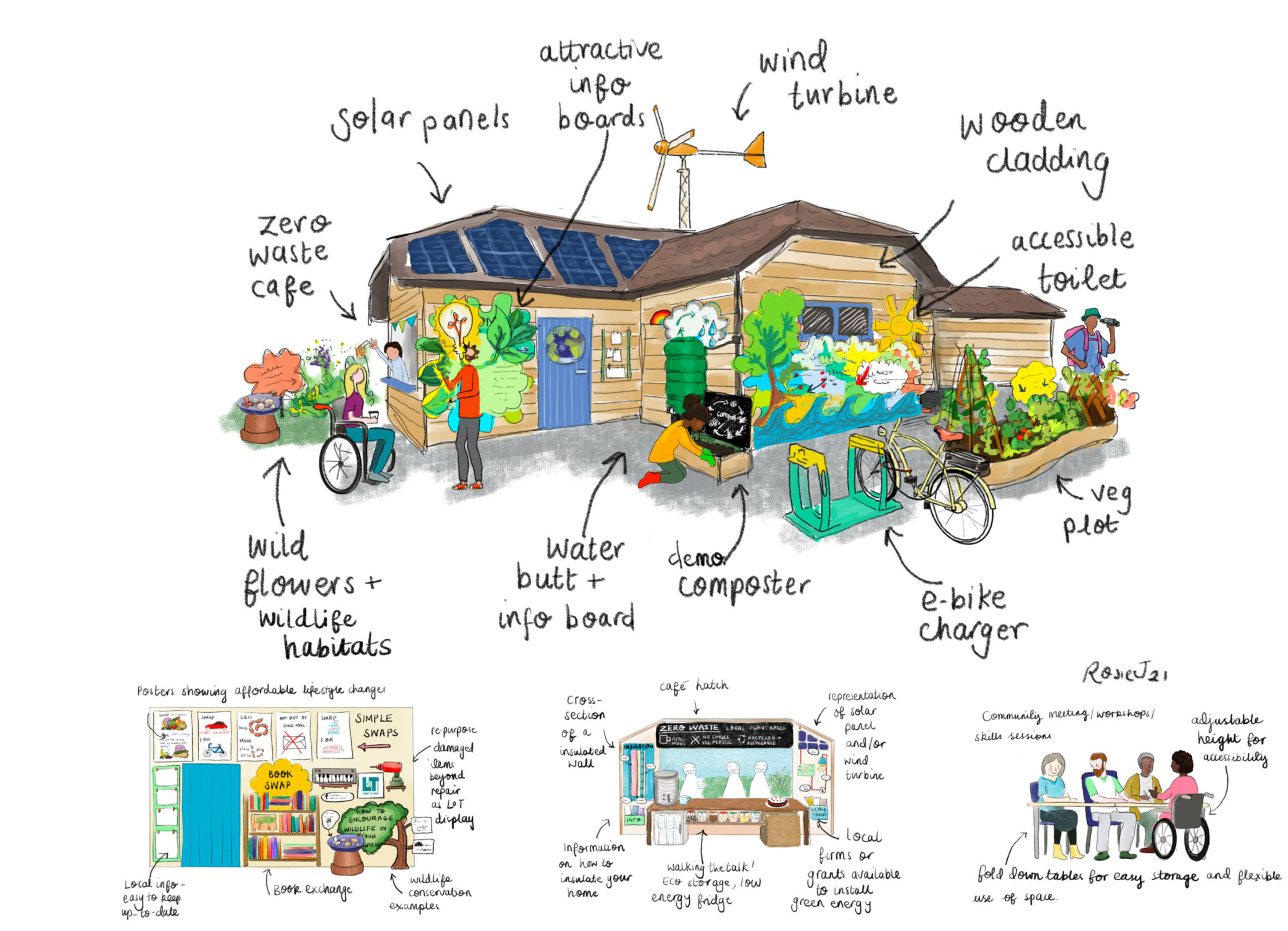
Johnson’s illustration subsequently won the Devon Climate Emergency’s prize for Net-Zero Visions. In an interview, she describes how she went about translating her friend’s wild imaginings into an artwork that could be shown to others:
“Nicky had such an ambitious dream for what, to other people, may have looked like an abandoned toilet block with no redeeming features. It was relatively easy to translate those ideas to the page as her vision was so well formed. Firstly, we visited the site together … to take photographs. From my photos, I sketched some basic ideas and then, in collaboration with Nicky, committed them to digital form… We wanted to take into account the multi-purpose nature of the building and, of course, consider the most sustainable materials.”
But words are important too. And when Nicky’s husband came up with a name for the project, they knew they’d hit gold: Call of Nature. Of course!
Such was the power of Rosie’s illustration and the brilliant project title, everyone immediately ‘got it’.
The practicalities
The vision was itself inspired by others. For example, the visitor’s centre along the Jurassic Coast at West Bay, where a crumbling former Methodist chapel and Grade II listed building had been brought beautifully back to life; the Durley Chine environmental centre at Bournemouth, a £2.4 million hub, funded by the Coastal Communities Fund to tackle the issue of marine pollution and to promote environmentally positive behaviour and systems; and the Climate Action Hub in Exeter’s busy Princesshay shopping district.
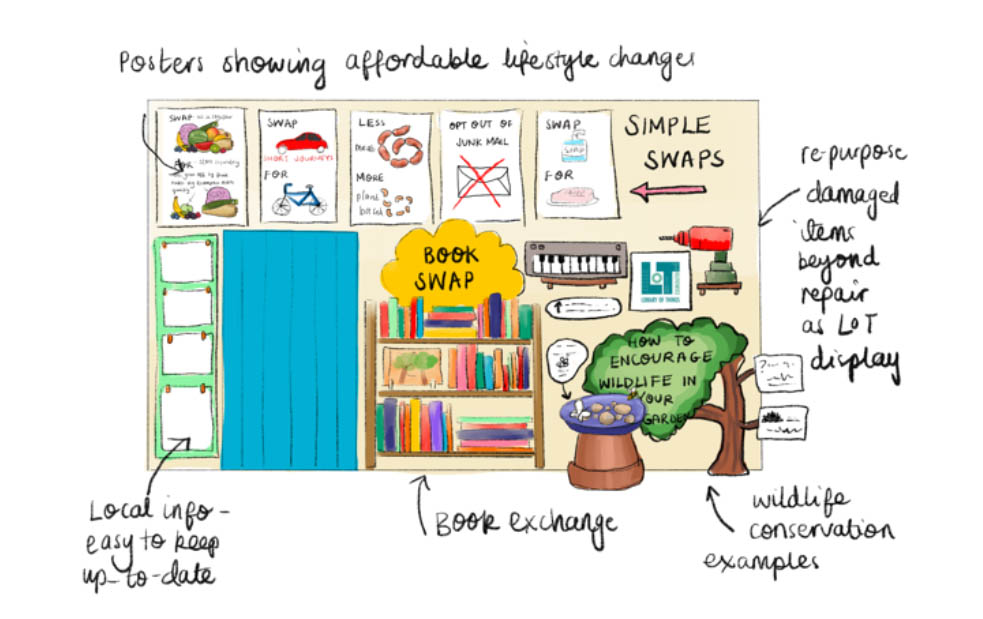
“We wanted this to be so much more than just a place to go to pick up a leaflet. We want the project itself to be an exemplar of how you can retrofit the most crappy little ’80s redbrick building using all recycled materials. It’s basically a whole new way of doing it.”
As to what will go on inside, this would be a mix of meetings, events, growing space (outside), skills-sharing, book-swap, library of things, repair café … the possibilities are vast even if the space itself isn’t.
“We want it very much to be a destination, and be attractive and to tell the story of climate change. It’s somewhere where you can tangibly see how the insulation has been done, there’ll be a panel in the wall. You’ll be able to see how the solar panels and the wind turbine are generating power – you’ll properly experience it. There’ll be skill-sharing workshops, and I imagine a hatch-based servery – zero-waste, vegan, organic – showing the processes of where it comes from, and where it goes.”
Nicky has recently been able to join forces with Zoey Cooper, the new Climate Change Officer at Exmouth Town Council.
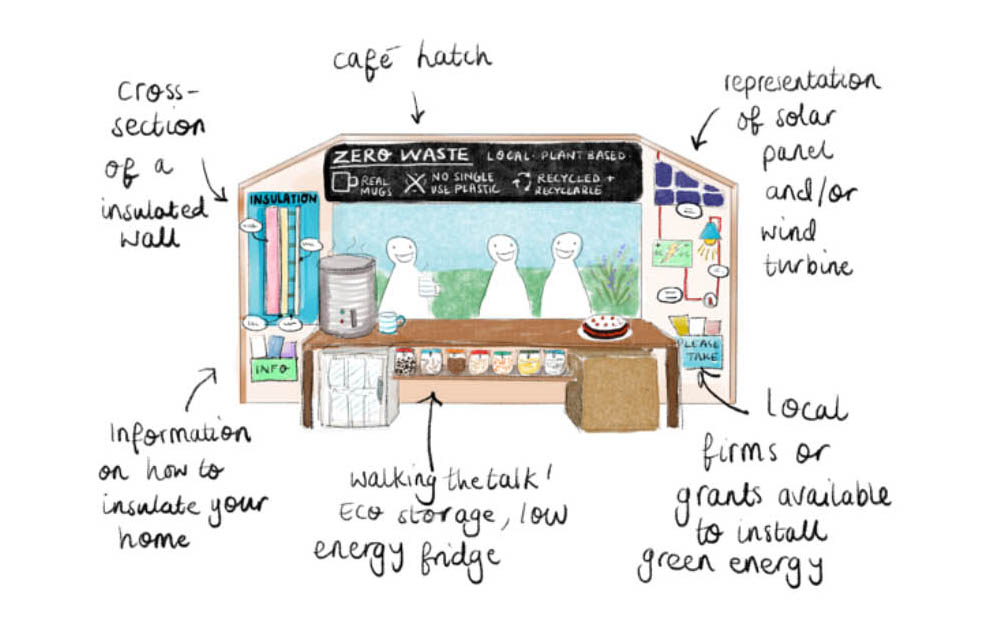
Together with the Town Council’s Climate and Ecological Emergency Working Party, they are honing their vision for Call of Nature. A meeting room on the second floor could be rented out to companies or organisations for meetings – providing an additional income stream. Call of Nature will be much more than just an interpretation centre: “I think people now know what climate change is. The question is more: what do we do about it?”
Over the pandemic, members of Transition Exmouth worked on an online platform called ‘Our Place Our Planet’. Under six headings – travel, energy, nature, waste, food, carbon calculator – the site gives practical, local solutions to how to live more sustainably. “It was built in such a way that it is totally localisable. We can just give any group the toolbox, and they can customise it to their local area. It’s brilliant!” For Nicky, the Call of Nature will do, in real life, what OPOP does online.
For Nicky, Zoey and their team, the principle behind Call of Nature is very simple (“Carbon neutrality has to be at the centre of everything”) even if the process is not. And it’s not. There are many hurdles for a project like this. A lease to be agreed and signed, business plans to be fleshed out, finances agreed. The council needs to be sure that this project is going to be able to ‘wash its face’ (we both laugh a bit at that, given where we’re talking about). Architect plans must be approved, it has to go through planning. All this takes time, and a lot of patience and determination.
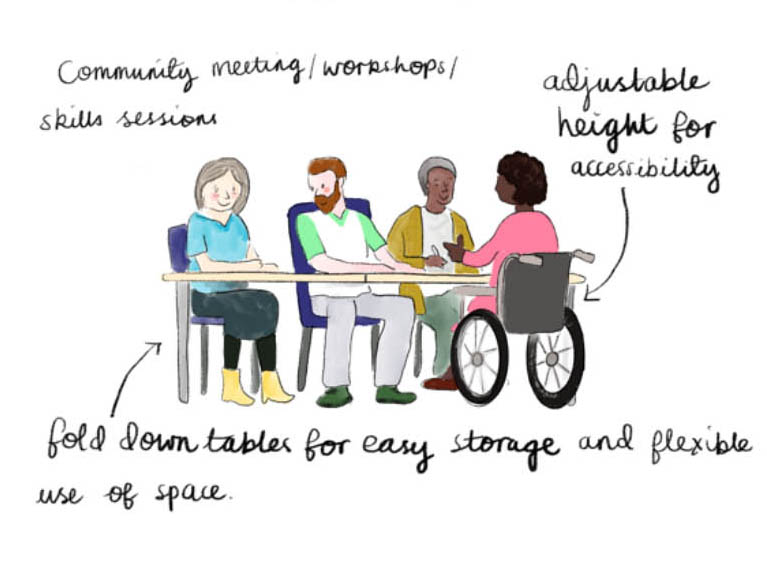
On the upside though, the project has just received a chunk of grant money from Transition Together enabling Nicky to pay for a small part-time role. Without that, none of this would be possible for her, and the whole project might well grind to a standstill. “Of course, we might not get planning permission, or the whole project might fail,” she says with a shrug. “But if we get to that point with the council, we could maybe figure out how to do it as a wholly Transition project. Just do it ourselves anyway, somehow.”
After we part ways, I go for a walk, following the tideline of the estuary. In the distance, a small flock of avocets are picking their way through the mudflats. It’s early spring and the light is all mussel and pearl. This is a designated RSPB bird reserve supporting a precious and rare ecosystem, between freshwater and sea. Call of Nature will have all this on its doorstep.
It’s not hard to believe this is going to happen. In fact, it’s hard not to: Rosie’s illustration has, in a way, already brought it to life. Reality just needs to catch up.
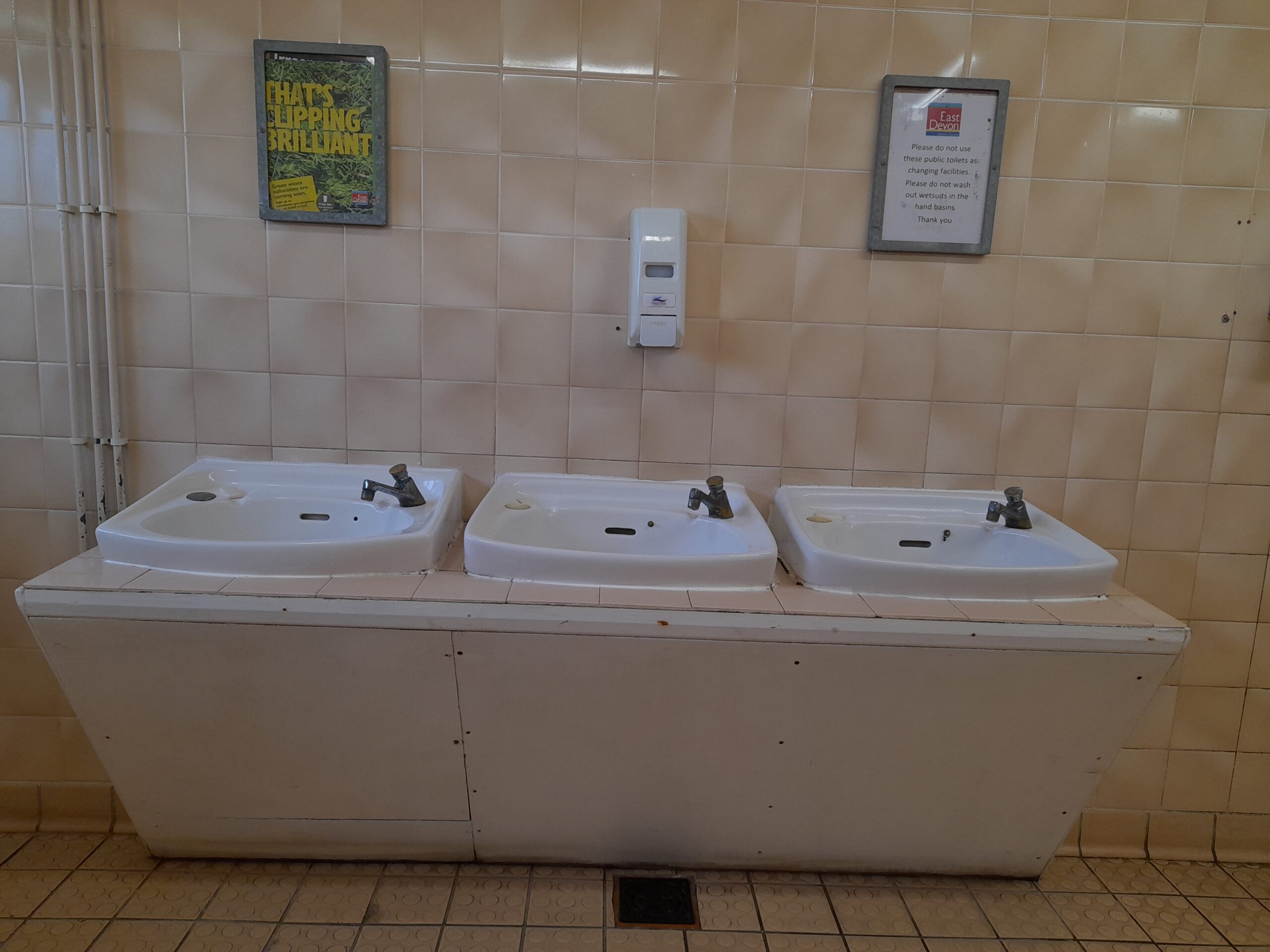
I get the picture. Do you?
